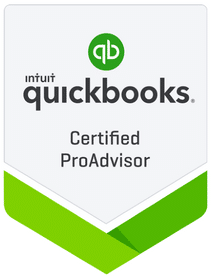- Patrick Roney
- (877) 503-8607
Follow Us :
Follow Us :
Proledge
April 15, 2011

Bookkeepers and accountants are not interchangeable. There are tasks that clearly belong to your bookkeeper and others that belong to your CPA. In many people’s mind, the demarcation line is blurry and this is because, historically, both professions have had incentives to blur that line in order to grab billable hours away from each other. The reality is a lot simpler and cleaner.
The accounting profession (aka CPAs) is highly regulated. The bookkeeping profession is not regulated at all. Does this mean that bookkeepers can do anything they want? Of course not. Essentially, the regulations that matter to bookkeepers are the accounting regulations because they tell bookkeepers what they are not allowed to do. The accounting regulations dictate the tasks that only certified public accountants (CPAs) are allowed to perform and which therefore can’t be touched by bookkeepers.
Accounting regulations are driven by various entities at the Federal level and State level. At the Federal level, the world of CPAs is influenced by a slew of organizations such as FASB (Financial Accounting Standards Board), the AICPA (American Institute of Certified Public Accountants), the IRS, the SEC, etc… Each state then adds a layer of rules on top of the Federal regulations . The net effect is that state regulations are the most restrictive and should be the one that drive most behaviors in the accounting space. At the state level, there are a few organizations that have their say, but to keep things simple, assume that your State Board of Accountancy is the point of reference. For instance, in Texas, it’s the Texas State Board of Public Accountancy. Note that, in most states, the word “accountant” is legally synonymous with “CPA”, whereas the general public often assumes that “accountant” is a generic term that covers bookkeepers as well.
The nuances might vary from state to state, but at a very high level, CPAs and accounting firms are the only entities that can vouch for the accuracy of a company’s financials. For instance, only CPAs or CPA firms can audit books, but this is usually the least of a small business owner’s concern because very few small businesses require audits. The main implication for small businesses is that bookkeepers are not allowed to produce financial statements.
“Hold on!”, you might say. “How can my bookkeeper help me if she can’t produce financial statements?”. That’s where an important nuance comes into play. “Producing financial statements” means creating P&L, balance sheets and cash flow statements that can be provided to 3rd parties to guaranty the state of your financials. That doesn’t mean that your bookkeeper can’t create financial reports for your internal use. However, you cannot turn around and take these same financial reports and give them to your bank or your investors. Many bookkeepers are not aware of this and happily trample on the CPAs’ turf. That could get them into trouble. The state boards of accountancy are aggressively cracking down on this. Any financial report that comes from your bookkeeper should be clearly labeled: “For Internal Use Only – Not Audited. Not Attested” or something along those lines.
At the risk of oversimplifying, the demarcation line between the bookkeeper and the CPA could almost be defined solely by this definition of “Financial Statement”, but, in practice, there is a second dimension to be used: taxes.
Theoretically, you don’t need to be a CPA to prepare taxes. Many bookkeepers actually do prepare taxes for their clients. They just can’t sign them because it would be a representation that they vouch for the accuracy of the data, which, again, is the exclusive turf of the CPAs. The reality is that, by letting your bookkeeper dabble with your taxes, you are playing with fire. As a starter, the IRS and the states are increasingly clamping down on this and adding certification requirements, but most importantly, taxes are complex and evolve constantly. To be qualified to prepare taxes, you need to focus on this day in and day out and go through continuing professional education. Leave this to your CPA or to a certified tax preparer. If your bookkeeper offers you tax advice or proposes to prepare your taxes, think twice about it.
The core function of a bookkeeper is to save you cost by performing financial tasks that can be legally and efficiently performed by entities other than CPAs and accounting firms. Many CPAs offer bookkeeping services as well, but their rates are higher and they often are not as agile with QuickBooks as bookkeepers are. CPAs are better suited for pulling information out of QuickBooks (attested financial statements and taxes) than putting it in (bookkeeping).


Fill out the form below to sign up to our Blog Newsletter and we’ll drop you a line when new articles come up.
Bookkeepers.
Professional. Affordable.
ProLedge is a bookkeeping services firm.
Copyright © 2024 All rights reserved.
Hello. Can we help you?